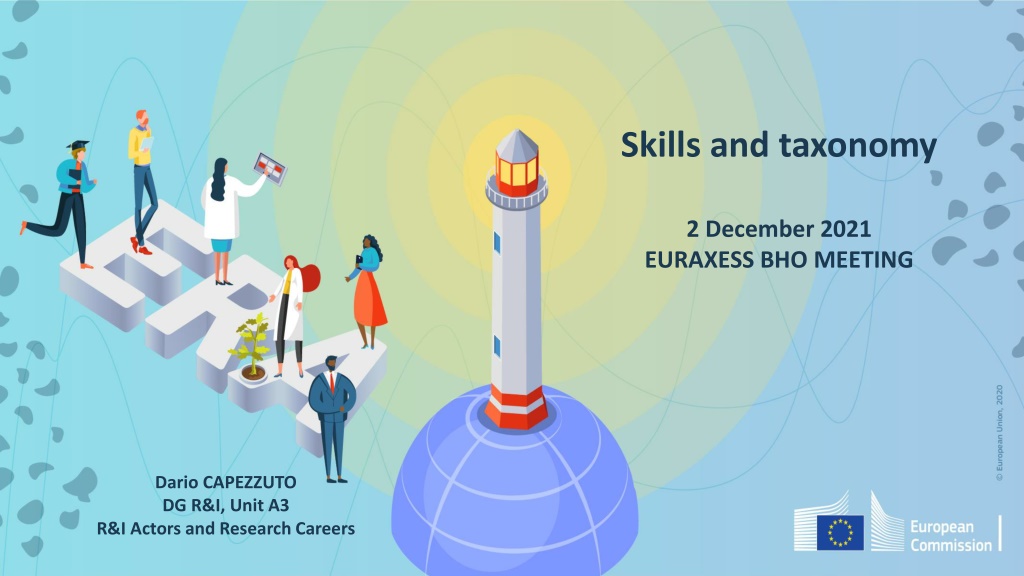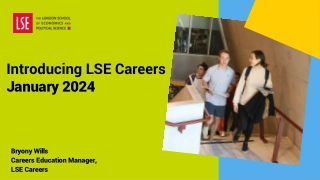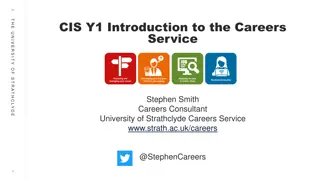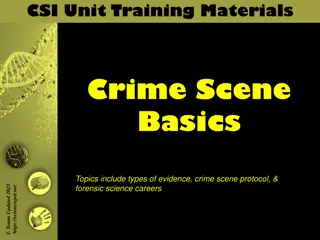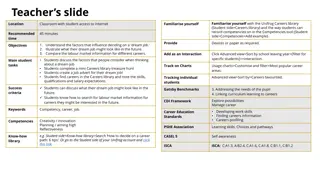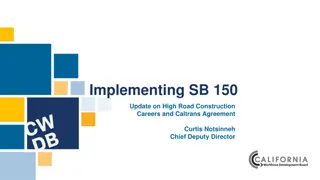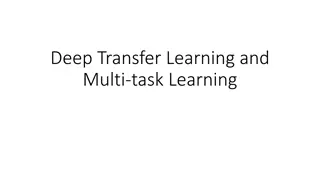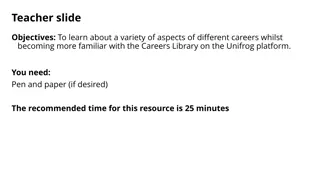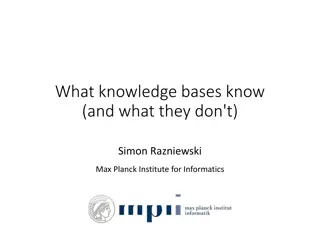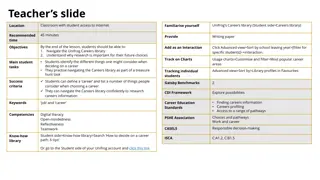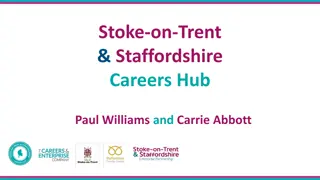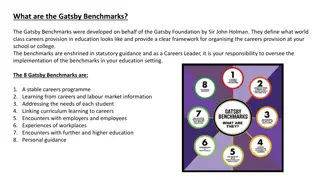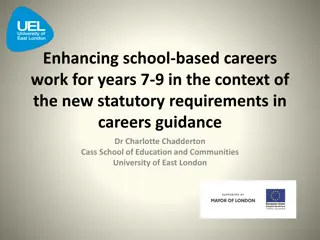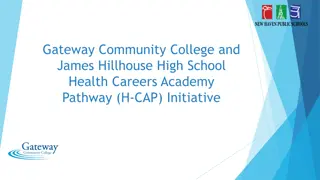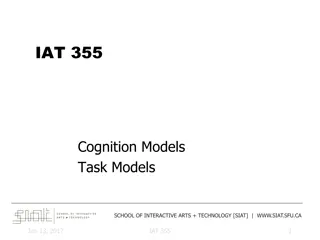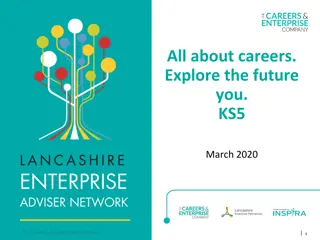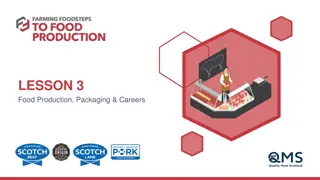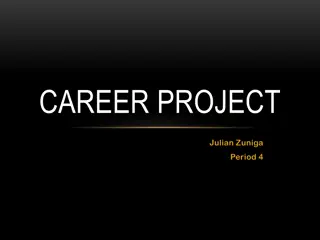European Framework for Research Careers and Skills Taxonomies
The European Framework for Research Careers aims to synergize with the European Education Area and employment policies, recognizing and enhancing talent in research. It emphasizes brain circulation, intersectoral mobility, and training development. The initiative includes developing a Competence Framework for researchers, transposing skills through EURES, and fostering synergies with Europass and EQF. The goal is to establish European Universities as testbeds for research policies and career advancements. Additionally, the initiative focuses on creating a taxonomy of skills for researchers to monitor brain circulation effectively.
Download Presentation

Please find below an Image/Link to download the presentation.
The content on the website is provided AS IS for your information and personal use only. It may not be sold, licensed, or shared on other websites without obtaining consent from the author. Download presentation by click this link. If you encounter any issues during the download, it is possible that the publisher has removed the file from their server.
E N D
Presentation Transcript
Skills and taxonomy 2 December 2021 EURAXESS BHO MEETING Dario CAPEZZUTO DG R&I, Unit A3 R&I Actors and Research Careers
A European Framework for Research Careers Synergies with the European Education Area Nourishing and attracting talent Synergies with employment and social policy European Strategy for Universities (human capital development) Recognition of the profession Brain circulation Intersectoral mobility Training and career development Widening ESCO update Skills taxonomies Competence framework Transposition through EURES Links with Europass and EQF European Universities as testbed Research policy ERA4You ERA Talent Platform expanding EURAXESS: Entry and employment conditions ERA Priority 3 assessment (Charter and Code, HRS4R, EURAXESS) jointly with ERAC Task Force Employment conditions including transferability of pensions, social security Access to labour market (Students and Researchers Directive) Governance Network & services Portals and tools Framework to address challenges: within academia (e.g. tenure track, assessment, diversification, international) outside academia (e.g. interoperability of research careers in industry) Data intelligence and monitoring labour market patterns, trends and dynamics Set up an Observatory on Research careers
Synergies ERA Communication Action 8 & the Skills Agenda Action 1 - Pact for Skills (vs Pact for Science) Action 2 Skills for a job improved skills intelligence Action 3 EU support for strategic national upskilling actions Action 4 Synergies PhD training and LLL for scientists with VET Skills Agenda ERA Communication Action 8 Deliver a toolbox of measures to support researcher careers, through a mobility scheme, training and more, in order to make Europe more attractive for talent. Action 5 European Universities and upskilling scientists To upskill scientists, in close cooperation with stakeholders and the Member States, the Commission will: develop a European Competence Framework for researchers and support the development of a set of core skills for researchers. define a taxonomy of skills for researchers, which will allow the statistical monitoring of brain circulation and agree with Member States on a set of indicators to allow monitoring and statistical analysis. develop open science and science management curricula for researchers. CC on research careers (May 2021) Pact for R&I in Europe (Nov 2021) ERA Policy Agenda (Nov 2021) Action 6 Skills to support the twin transition (green / digital) Action 7 increase STEM graduates (STEM PhD) Action 8 Skills for Life (LLL for scientists) Action 9 Initiative on individual learning accounts (ERA4YOU?) Action 10 EU approach to micro-credentials (in PhD training) Action 11 New EUROPASS Platform (for all researchers) Action 12 Improving the enabling framework to unlock MS and private investments in Skills (link to the EUN s? ) Update of ESCO with researchers skills and occupations European Competence Framework for Researchers
ESCO and a taxonomy of skills and occupations for researchers Better recognition of the research profession Researchers understand what skills and competences they need Targeted training -> Researchers are equipped with the skills and competences they need for careers in academia and beyond 13 500 13 500 3 000 3 000 Occupations Occupations Skills + Knowledge Skills + Knowledge Employers have a better overview of what researchers can offer ESCO update - end of 2021 European Skills, Occupations and Qualifications
ESCO and a European Competence Framework for Researchers - Methodology Two online surveys, one among researchers from the academic and private sector, and one among umbrella organisations Analysis of the full 2020 Euraxess database on the requested skills/competences by employers in different sectors and diverse career stages A literature review of existing competence profiles and career structures for researchers Case studies Interviews with stakeholders A focus group A multi-stakeholder validation meeting Final Competence Framework for Research Careers (ResearchComp)
Conceptual model of the European Competence Framework for Researchers Doing research Making an impact Research Comp Important to keep in mind that: - The development process is still ongoing - All competences are equally important & interrelated Self- - Each stakeholder can use the Framework as a starting point to address its own needs management - Researchers need to develop competences in all 7 areas, but should not acquire the same or the highest level of proficiency for all competences Manage personal professional development Show entrepreneurial spirit Plan self-organisation Cope with pressure
ResearchComp - Proficiency levels 4 proficiency levels Intermediate Expert Building independence Driving transformation, innovation and growth Advanced Foundational Taking responsibility and guiding others Developing expertise with guidance
Applications Increasing the awareness of relevant competences Selecting training & career guidance Individuals Fostering an active role in own career progression/choices Increasing intersectoral and international mobility Identification and recognition of competences Contributing to the design of job descriptions, training & career counseling Inspiring career progression appraisal models (e.g. moving beyond publication track record) Organisations Addressing the communication disconnect : increase awareness of researchers added-value Monitoring & mapping of competences Forecasting evolutions of skills/jobs Policy makers Links with priorities of R&D systems Link with ESCO Refer to the framework in other EU guidelines, frameworks or initiatives that link to researchers careers & competences 8 8
